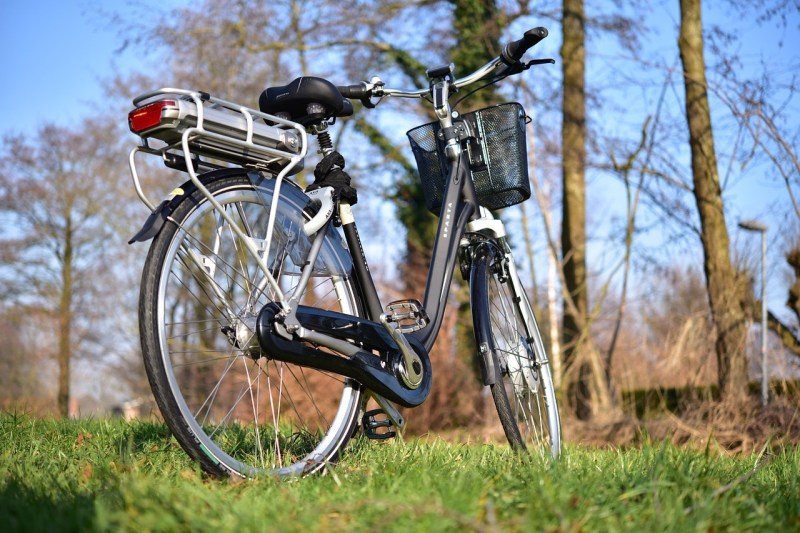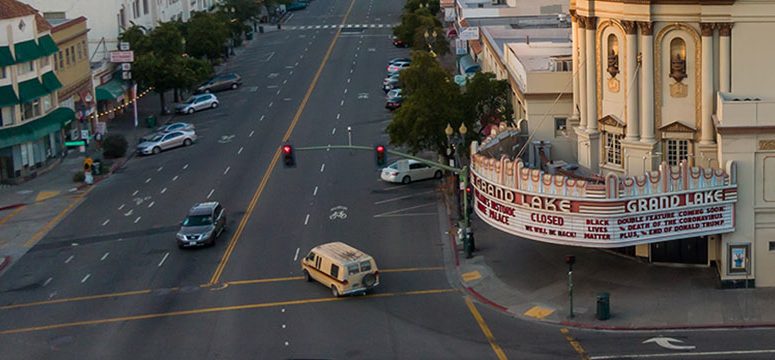If drivers in Portland, Ore. replaced a car trip with an e-bike trip just 15 percent of the time, it would take a 12 percent bite out of greenhouse gas emissions, a new study finds — and researchers think that the City of Roses isn't the only one for which that ambitious-sounding goal is achievable with a few minor initiatives.
The Portland State University-based researchers found that each e-bike could save the planet a whopping 496 pounds of carbon dioxide emissions each year — roughly equivalent to the annual carbon output of each computer in the average U.S. household. And yes, that's even accounting for riders who might charge their e-bike batteries off of a dirty, coal-powered electrical grid.
Of course, there are significant barriers to replacing even a slim minority of car trips on our roads with e-bike trips — but average travel distance isn't one of them. A stunning 45.6 percent of U.S. car trips are under three miles in length, according to the most recent National Household Travel Survey, and almost half of those trips are under a mile — short distances that, in any rational world, would be far more easily traversed by active transportation with a slight pedal assist, even for users of varying ability and mobility levels, especially when you consider the wide range of adaptive e-cycles available.
The researchers also noted the numerous benefits of e-bikes — some of which even outshine more traditional cycles.
"E-bikes can offer a cheaper alternative to car travel and can provide users with an adequate level of physical activity to enhance health," the researchers noted. "Riding an e-bike is rewarding and fun for many users, is freeing for users with limited ability and mobility, and ... can encourage users to cycle farther and more often than conventional bicycles, meaning that e-bikes offer the opportunity to multiply the benefits already available through conventional cycling."
So why aren't e-bikes zipping down every street in America already? The researchers looked to the famous 2015 Global High Shift Scenario project, which comprehensively modeled how various bike-promoting interventions would impact mode share, including (but not limited to) "bike lane network buildout, bike-share programs, implementation of laws that increase cyclist safety, transit investment, land use and transportation planning improvements, elimination of parking and fuel subsidies" and more. The model found that with investments in all of these areas, they could rapidly increase bike mode share to 14 percent and save the U.S. $24 trillion by 2050 — and that's with even fewer e-bikes in the fleet than the Portland researchers are predicting is feasible.
Bike-friendly Portland, of course, has been working harder than many U.S. cities to check as many of the boxes as possible on the Global High Shift Scenario — though its famously impressive bike lane network isn't as well-connected in the non-white areas of the city. Still, the researchers were hopeful that their city — and by extension, many other U.S. cities — could increase e-bike usage, in particular by accelerating already-underway programs devoted to expanding access to protected cycling infrastructure, reforming zoning to create 15 minute neighborhoods, and finalizing its statewide experiment with vehicle miles travelled tax to fund sustainable transportation infrastructure.
The researchers also explored a few more ambitious steps the city could take, including subsidizing the purchase of e-bikes for people with low household incomes (or at least providing them with zero-interest loans), installing charging stations with protected storage facilities along popular bike routes, and introducing more e-bikes into bike-share programs for temporary use.
Those might seem like ambitious moves — and undoubtedly, implementing them equitably, and during a time of global bike shortages, would require even more significant political will. But a 12-percent drop in global emissions is nothing to sneeze at — and we owe it to our planet to try.






